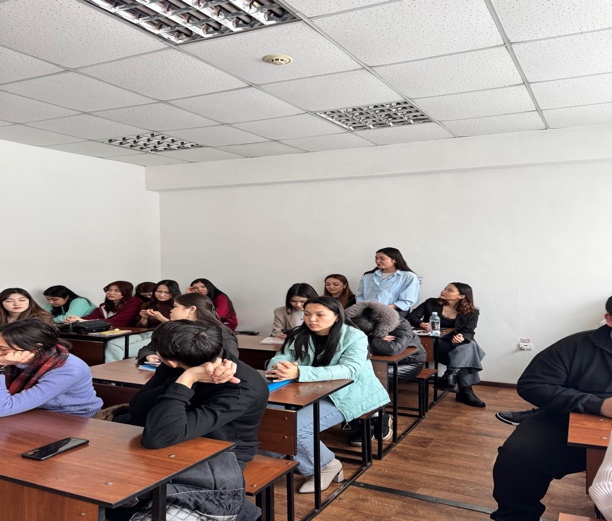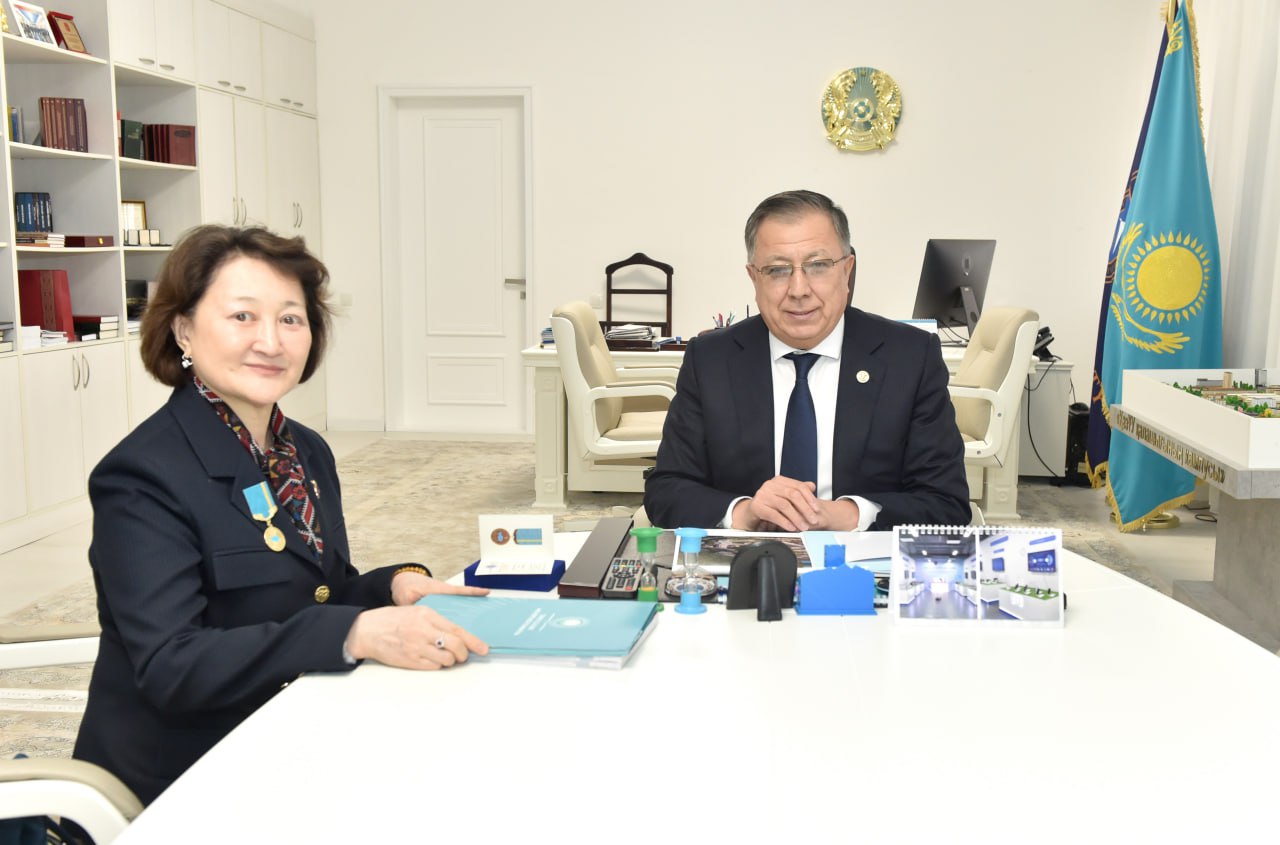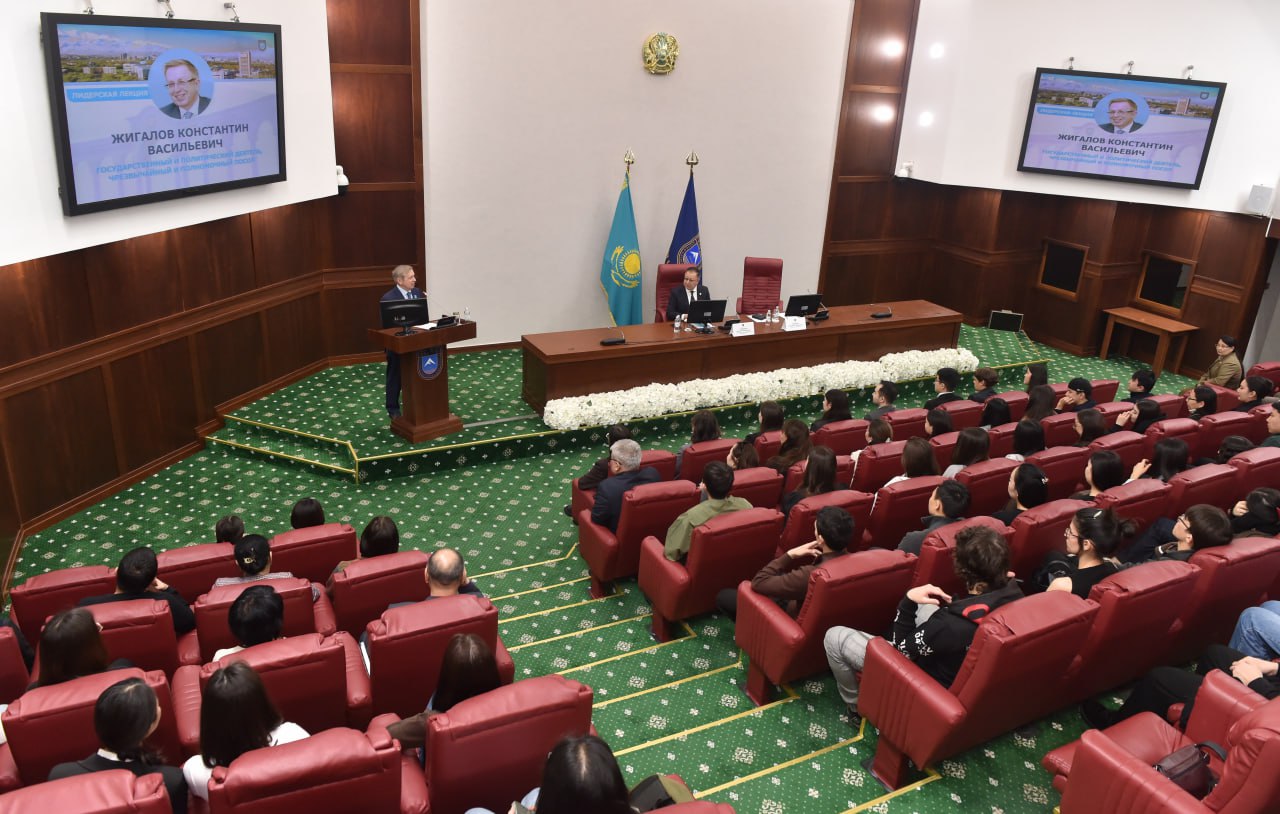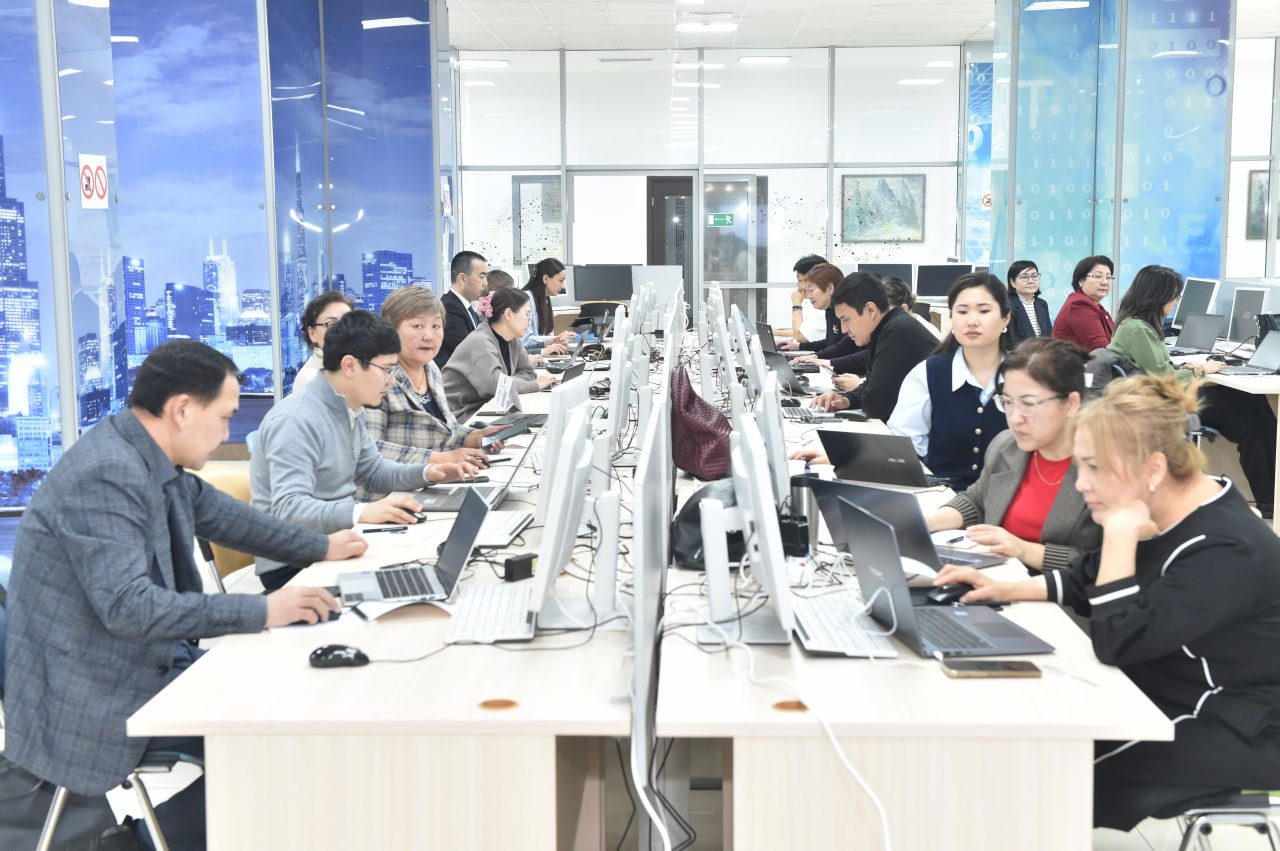- Main
- News
- A Meeting on “Religion and Traditions: Harmony of Interaction” Held at Al-Farabi KazNU as Part of the Sustainable Development Goals
A Meeting on “Religion and Traditions: Harmony of Interaction” Held at Al-Farabi KazNU as Part of the Sustainable Development Goals
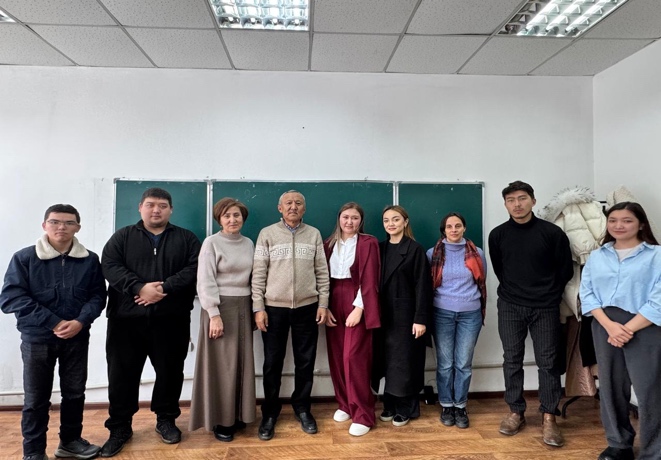
On March 12, 2025, a special meeting on the topic “Religion and Traditions: Harmony of Interaction” was organized at the Faculty of Philosophy and Political Science, Department of Religious Studies and Cultural Studies of Al-Farabi Kazakh National University (KazNU). The event was intended for 3rd-year students of the “Religious Studies” program and aimed to discuss the interconnection between religion and traditions in society, as well as their role in the modern world.
The meeting was initiated by K.M. Bishmanov, Doctor of Law, Professor, Borbassova, Doctor of Philosophy, Professor, and U. Kalyakbar, a 1st-year doctoral student. In addition, Dosymbek Katranuly, a Candidate of Historical Sciences engaged in scientific research in the field of history, was invited as a special expert.
During the meeting, the participants discussed the harmonious coexistence of religion and traditions in Kazakhstani society, their significance in national culture, and their role in contemporary religious consciousness. The speakers emphasized the importance of traditions in the historical formation of religion and examined the connection between the traditional worldview of the Kazakh people and Islamic values. Additionally, discussions were held on how religious beliefs and traditional values can be balanced in a secular state.
The event took place in an interactive format, with active student participation. Many students provided examples of the harmonious interaction between religion and traditions in modern society and raised thought-provoking questions. Special attention was given to topics such as the compatibility or contradictions between national customs and religious norms, as well as the perspectives of young people on traditional values and religious teachings.
This meeting made a significant contribution to expanding students’ understanding of religion and traditions, enhancing their critical thinking skills, and shaping their scientific outlook. At the end of the event, the organizers expressed their gratitude to the participants and announced that similar academic and educational meetings would be held regularly in the future.
Thus, the event became a platform for discussing key issues related to the interaction between religion and traditions, providing students and scholars with an opportunity to gain a deeper understanding of their role in society.
